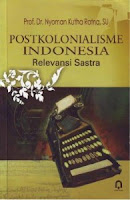Constructivism Dominating My Learning Journey
 |
| My friends and I in Linda's Class |
In the second weekly meeting of Pedagogical Engagement and Learning Course, Linda Westphalen presented the five main theories of learning.
Based on my reflection on some learning theories such as behaviorism, cognitivism, constructivism, experientialism, and social and contextual, I have finally concluded that constructivism was the representative learning style in my learning process while studying for an undergraduate degree for four years, bringing advantages and disadvantages. These times were my most favorite learning process.
One of the advantages of having experiences in the learning style of constructivism is that constructivism brings together my knowledge,
experiences, and backgrounds. Richard Rorty named this method the “conversation of mankind”
(Kiraly, 2014, p. 4) or the “social construction” (Jia, 2010, p. 197). Everyone’s understanding is different to someone
else including me. Another
advantage of constructivism to me, I tend to focus on the learning process more than my grade because I am aware that conscious,
initiative and self-organized
recognition are the key points of my achievement. I am proud of myself for passing some courses
although I did not get high scores in some courses
because I had already
done the best in the learning process. Lastly, I am sure that learning
process always supports students with a role in learning,
so I prefer to be an independent learner and push myself in learning
school material rather than just listening to the teachers in the class.
However, some disadvantages may come as a result of being constructivist in the learning process. For example,
I am always not sure or doubt about my teacher’s explanation in the class because I think that every teacher is not ‘objective’ in the process of transferring material.
Overall, being a constructivist, I have the chance to be a great learner by own effort, and I do love it.
References
Jia, Q. (2010). A brief study on the implication of constructivism teaching
theory on classroom teaching reform in basic education. International Education Studies, 3(2), 197.
Kiraly, D. (2014). A social constructivist approach to translator education:
Empowerment from theory to practice:
Routledge.


Komentar